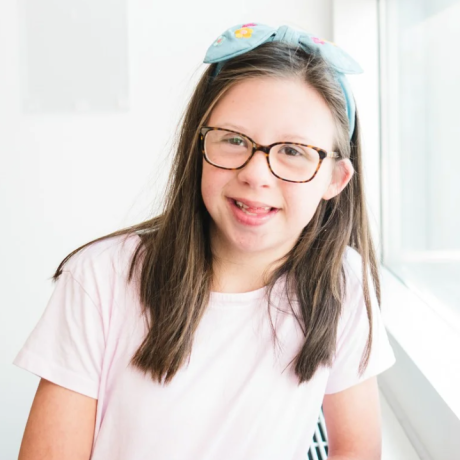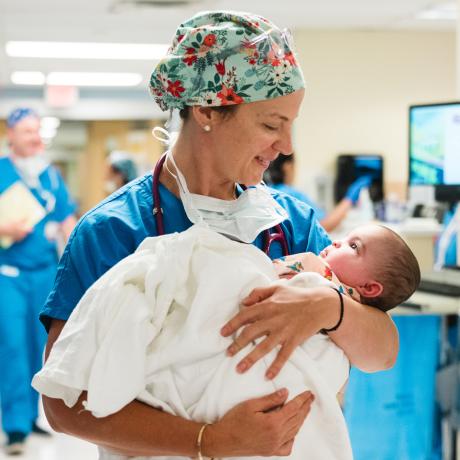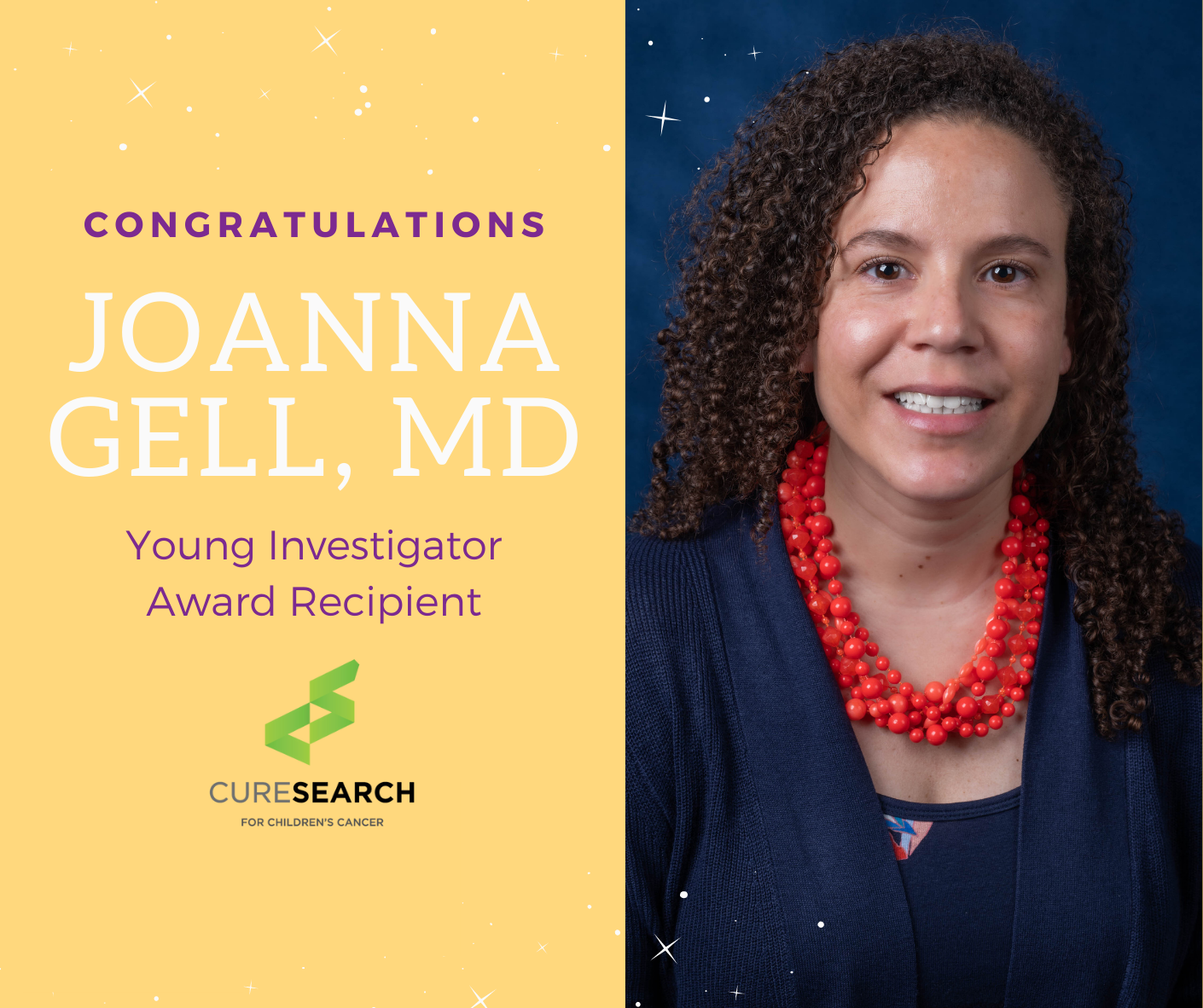Germ cell tumors (GCTs) make up a biologically complex group of tumors, ranging from benign to malignant. Additionally, GCTs can be found in multiple sites in the body, from the gonads to the central nervous system. Intracranial germ cell tumors (iGCTs), or germ cell brain tumors are very rare, accounting for only 3% of pediatric primary brain tumors. GCTs that develop in the brain confer survival rates of only 60-70%. Current treatments result in significant morbidity including renal impairment, secondary malignancies, cognitive impairment, visual-field impairment and endocrine disorders.
Joanna Gell, MD, is a CureSearch Young Investigator conducting research at Connecticut Children’s to identify a more effective and less toxic therapy for iGCT. iGCT growth and survival is dependent on the interaction of two proteins, PRDM14 and CFA2T2. Because PRDM14 is expressed uniquely in tumors but not normal cells, disruption of its activity should not impact normal cells, but only tumor cells. Given the long-term irreversible side effects that often accompany iGCT treatment by either chemotherapy or radiation, it is of great interest to find novel compounds that can be utilized to treat iGCTs with high specificity. Dr. Gell hypothesizes that disruption of the interaction between PRDM14 and CFA2T2 will result in cancer cell death. Dr. Gell will partner with IBM’s Smash Childhood Cancer Consortium to engage the enormous computational power of the World Community Grid to screen millions of compounds in silico (on a computer) to identify a targeted compound for PRDM14. Once she has identified targeted compounds, she will assess their ability to disrupt iGCT growth and survival in human cell lines and animals harboring human iGCT cells. As PRDM14 is expressed in several pediatric and adult malignancies, the impact of therapeutics that are developed can be expanded beyond iGCTs.



